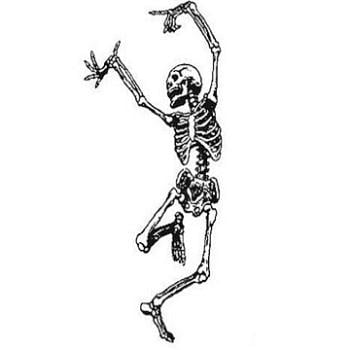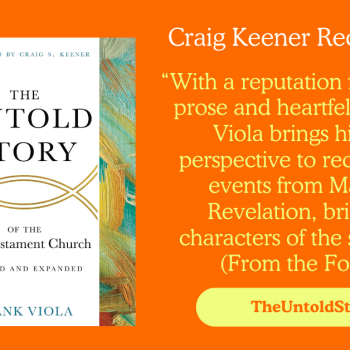So many young Christians today were born into a Christendom that lives quite comfortably in a sedate and suburban environment, a Christendom in which they are not really called to sacrifice radically in order to follow Jesus. Yet there seems to be a hunch that Christ calls us to something more than that -- and a yearning to give ourselves with abandon to a more radical Christian life. Is that the wellspring, so to speak, of the progressive evangelical movement?
I think it's the inevitable fruit of a new generation that is growing up seeing the fragility of the world that we have created. So through the internet, and things like that, there's a real sense that the current patterns of living are not sustainable. They don't make a lot of sense. And they're not necessarily even giving us life. Happiness cannot be purchased. Look at the wealthiest countries in the world; they have the highest rates of depression, suicide, loneliness.
In fact, sometimes I joked, since I did youth ministry a lot, that if you wanted to know the richest kids in the suburbs, they look the poorest -- they're the punk kids, the Goth kids. There is a healthy suspicion of the American dream. I'm not sure the world can afford the American dream. The average person in the U.S. is consuming the same amount as 500 Africans. If we're really pursuing the idea of loving our neighbor as ourselves, it causes us to redefine how we consume and how we live in the world.
That's what's happening. A generation is growing up that knows about the invisible children in Uganda. They know about Haiti and Zimbabwe and the places that are in deep crisis. Everyone is always talking about how the mainline congregations are dying. I really believe that if we lose a generation, it's going to be because we didn't dare them to really read the gospel in light of the world we live in, and read the world we live in, in light of the gospel and allow it to affect them. If we don't give them opportunities to engage the world beyond a short-term mission trip in the summer, then they're going to join AmeriCorps and Teach for America -- things that are great programs but are not distinctively Christian.
Where do you think the progressive Christian movement really has something to contribute to the life of the church as a whole in America?
I hope that the progressive Christian community can offer the general public civil dialogue, and even the humility to admit that we might be wrong on some things; to be good listeners, and to be known not just for what we're against, but for what we're for. One of the things that I am a real critic of is the way that liberals and conservatives both can have really great ideologies and still be mean and pretentious. One of the things that I would emphasize is that just as important as being right is being nice. Young people are especially suspicious of people who have all the "right" answers, because all the "right" answers haven't worked so far. So I think progressive Christians should model the humility to ask the good questions and to be good listeners.
Let's imagine that you are a character in The Screwtape Letters, and you wanted to derail the New Monastic movement. How would you do it? What are its weak points, its temptations?
If I were trying to derail it, I suppose the first thing I would do is try to get it to become infatuated with itself, and to become narcissistic enough to implode on itself, so that the movement becomes more important than loving neighbors. If that didn't work, then I would probably try to settle for New Monasticism having the spirit of monasticism without the forms of it, or the rigor of it, so that it's almost like Cliff Notes: you get the essence of it, but not really, and the movie's nothing like reading the book. So, having something where it looks like it, but it's really more of a counterfeit revolution than the real thing.
Are you concerned about a growing rift between Evangelicals Left and Right?
I don't see that the rift is growing. What I see in the middle of all the mess, in post-religious-right America, are folks who don't easily fit into the containers having really civil dialogue with each other. I've been in conversations with folks like Jim Bailey at Focus on the Family and others; I have very optimistic hopes for where those friendships can lead. I see people being very careful to be self-critical and try to get the log out of their own eye rather than picking on the speck in someone else's. I think that some of my friends who would be more on the left on a lot of issues are some of the first folks to critique their own -- like the Democrats or others.
The language I hear that's really encouraging is that we need a consistent ethic of life. There are a lot of folks talking about that, especially young people who believe that Jesus is the way, the truth and the life, which means that we need to interrupt whatever destroys life and dignity, in the womb or in the tomb, so that poverty, war, death, all become "Life" issues.





